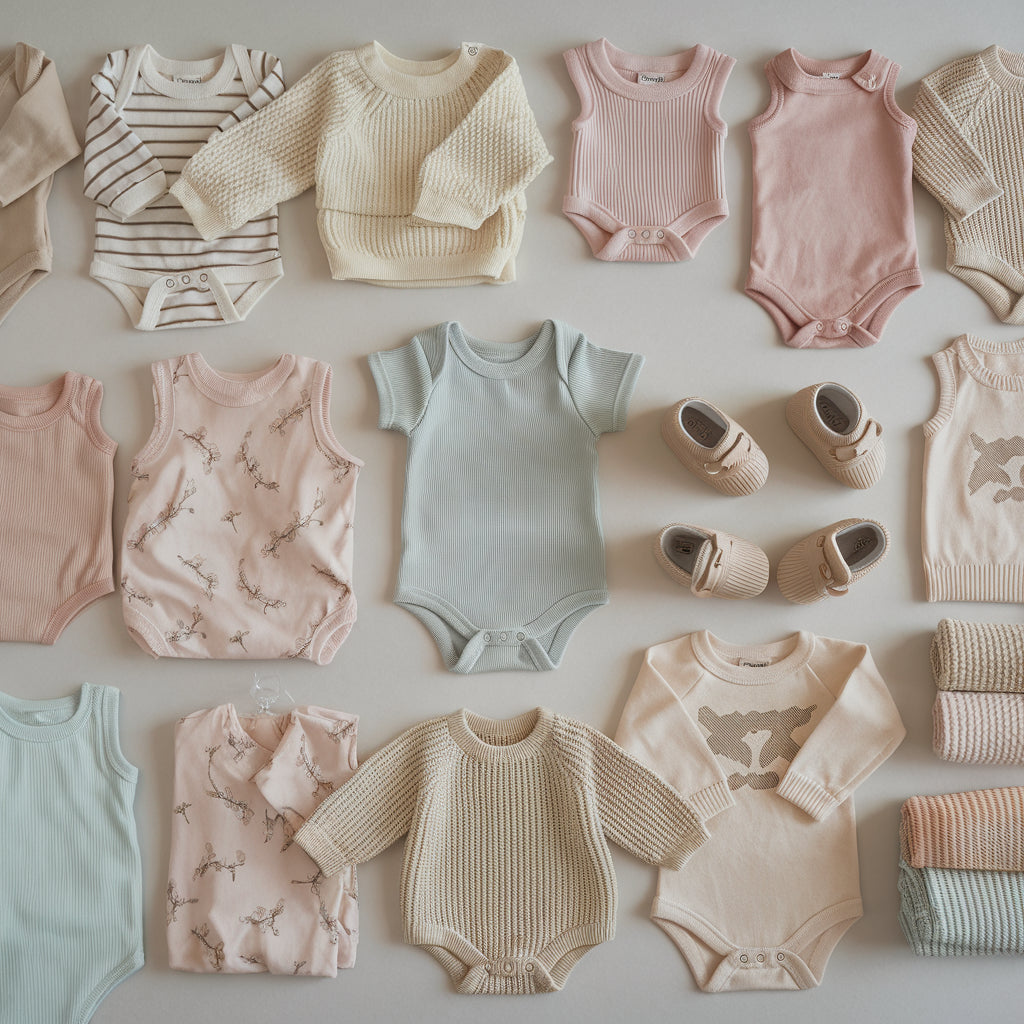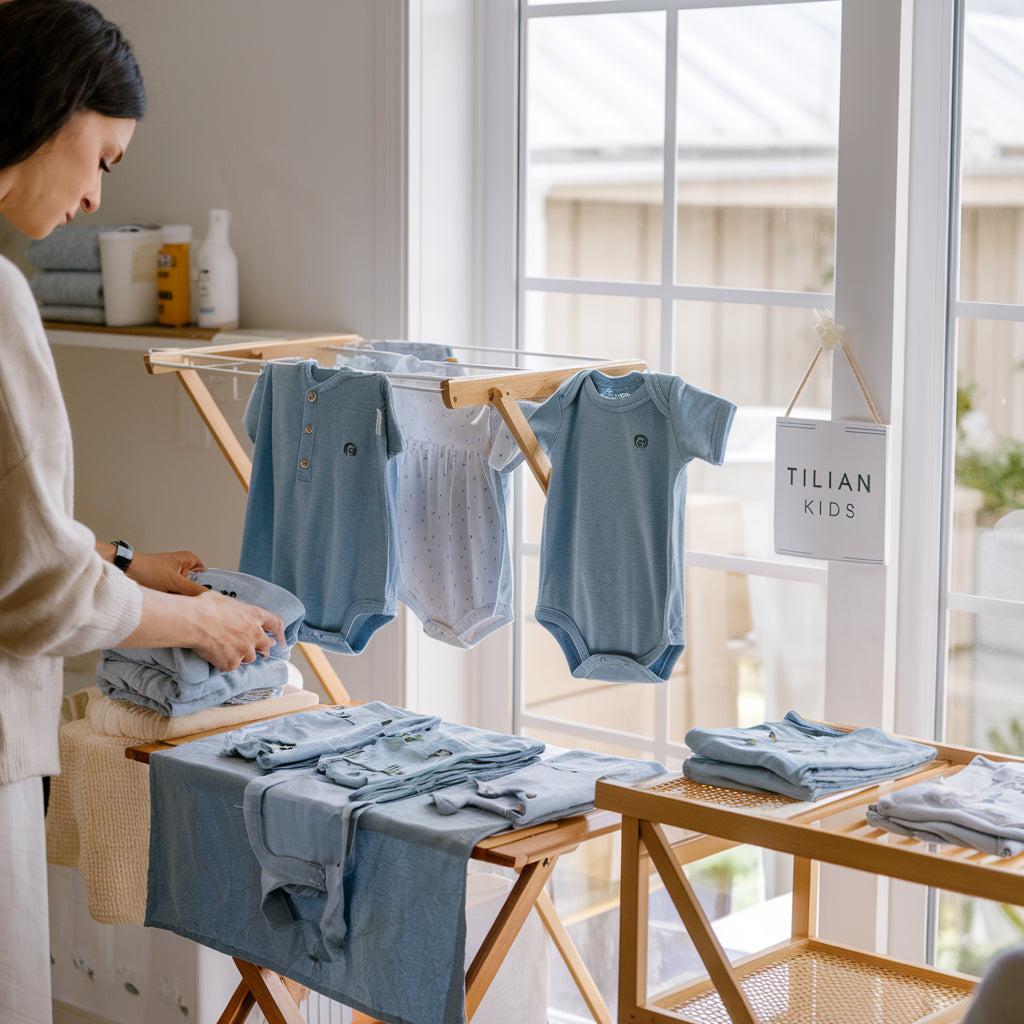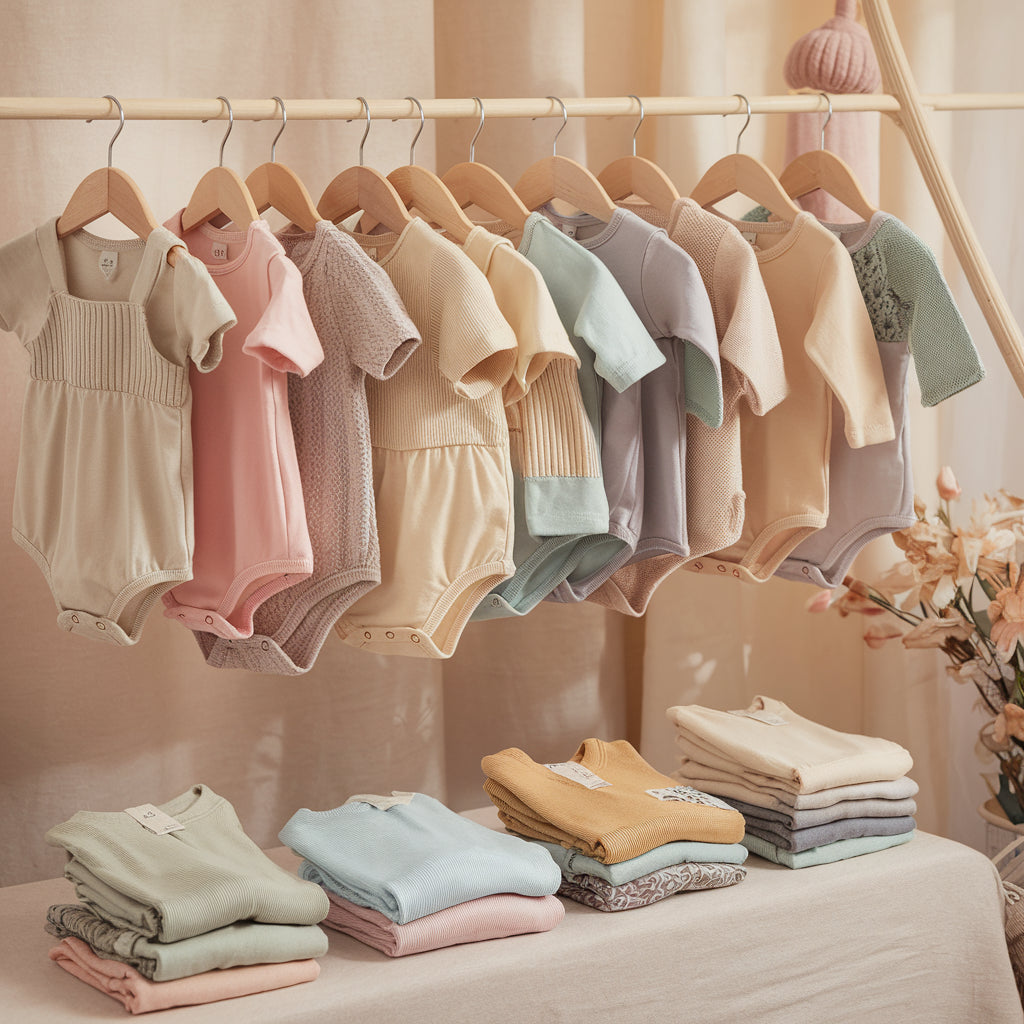
The Essential Guide to Baby Clothing: Organic, Sustainable, and Stylish Choices
Choosing baby clothing is one of the most delightful tasks for new parents. With countless options available, the challenge lies in selecting the best attire that is not only adorable but also safe, comfortable, and eco-friendly. In recent years, there's been a significant shift toward organic and sustainable baby clothing, and for good reason.
Why Organic Baby Clothing Matters
When it comes to baby clothes, organic options are increasingly popular among parents. Organic baby clothing is made from natural fibers, usually cotton, that are grown without the use of harmful pesticides or synthetic fertilizers. This makes them an excellent choice for a baby’s sensitive skin. Babies are more susceptible to the chemicals found in non-organic fabrics, which can cause skin irritations, allergies, and other health issues.
Organic cotton is breathable and soft, ensuring that the baby remains comfortable throughout the day. Additionally, organic farming practices are better for the environment, as they reduce pollution, conserve water, and promote healthy soil.
Sustainable Baby Clothing: What to Look For
Sustainability goes hand-in-hand with organic when it comes to baby clothing. Sustainable baby clothes are made from eco-friendly materials that minimize environmental impact during production and after disposal. Key factors to consider when shopping for sustainable baby clothing include:
- Fabric: Look for clothes made from organic cotton, bamboo, hemp, or recycled materials. These fabrics are not only sustainable but also gentle on your baby’s skin.
- Dye: Ensure the clothes are dyed with non-toxic, water-based dyes. This reduces the risk of chemical exposure for your baby.
- Production Practices: Consider brands that follow ethical manufacturing processes, ensuring fair wages and safe working conditions for their employees.
- Durability: Sustainable baby clothes are designed to last longer, which means they can be handed down to younger siblings or friends, further reducing waste.
For a wide selection of organic and sustainable baby clothing, you can explore options at Tilian Kids.
Popular Styles in Baby Clothing
While comfort and safety are paramount, style remains a key consideration for many parents. Thankfully, sustainable baby clothing brands offer a range of fashionable options that don't compromise on these essential qualities. From cute rompers to stylish onesies, there’s something for every occasion. Here are some trending styles:
- Romper Suits: These are all-in-one outfits that are easy to put on and take off, making diaper changes a breeze. They come in a variety of colors and prints, often made from organic cotton or bamboo.
- Onesies: A staple in any baby wardrobe, onesies are versatile and can be layered with other clothing. Look for ones with simple, non-metal snaps made from eco-friendly materials.
- Knitted Outfits: Hand-knitted sweaters, hats, and booties made from organic wool are perfect for keeping your baby warm during cooler months. They also add a charming, vintage touch to your baby’s wardrobe.
- Eco-Friendly Footwear: Soft-soled shoes made from natural materials like leather or recycled rubber are ideal for babies who are just starting to walk. They protect tiny feet while allowing natural movement.
Choosing the Right Size and Fit
Babies grow quickly, so it’s important to choose clothing that fits well and allows for growth. Here are some tips:
- Consider Future Growth: Buy slightly larger sizes if you want the clothes to last a bit longer. Many sustainable brands design their clothing with adjustable features like foldable cuffs and elastic waistbands to accommodate growth.
- Comfort Over Style: Ensure that the clothing does not have tight elastics, rough seams, or tags that could irritate your baby’s skin. The fit should allow freedom of movement without being too loose.
- Seasonal Choices: Select appropriate clothing for the season. Lightweight, breathable fabrics are ideal for summer, while thicker, layered outfits work well in winter.
For more stylish options, check out the range of baby clothing available at Tilian Kids.
Maintaining and Caring for Baby Clothes
Caring for organic and sustainable baby clothing ensures that they last longer and retain their quality. Here are some tips for maintaining these garments:
- Washing: Use mild, eco-friendly detergents free from harsh chemicals to preserve the fabric's integrity and prevent skin irritation. Washing clothes in cold water can also reduce energy consumption.
- Drying: Air-drying clothes is preferable as it saves energy and reduces wear and tear from the dryer. If using a dryer, opt for a low-heat setting.
- Stain Removal: For tough stains, pre-treat with a natural stain remover or a mixture of baking soda and water before washing. Avoid bleach or other harsh chemicals that can damage the fabric and be harmful to your baby.
The Impact of Choosing Organic and Sustainable Clothing
By choosing organic and sustainable baby clothing, you’re not only ensuring your child’s safety and comfort but also contributing to a healthier planet. Every purchase supports environmentally friendly farming practices, reduces chemical pollution, and encourages ethical labor practices.
Furthermore, as more parents opt for sustainable options, the demand for such products increases, leading to more innovations and better practices within the industry. It's a small but significant step toward creating a better world for our children.
To start making a positive impact, explore the organic baby clothing collection at Tilian Kids.
FAQs
What is organic baby clothing? Organic baby clothing is made from natural fibers like organic cotton, grown without harmful pesticides, making it safer for a baby’s sensitive skin.
Why is sustainable baby clothing important? Sustainable baby clothing minimizes environmental impact by using eco-friendly materials and ethical production practices, ensuring a healthier planet for future generations.
How do I know if a baby clothing brand is truly sustainable? Look for certifications like GOTS (Global Organic Textile Standard) or Fair Trade, and research the brand’s production practices and material sources.
Are organic clothes better for my baby? Yes, organic clothes are free from harmful chemicals, making them gentler on your baby’s skin and reducing the risk of allergies and irritation.
How can I make baby clothes last longer? Choose slightly larger sizes, wash with mild detergents, air dry when possible, and opt for durable, high-quality fabrics.
Where can I buy sustainable baby clothing? Many brands specialize in sustainable baby clothing, and they are often available online. Look for brands that prioritize ethical practices and eco-friendly materials.
For a trusted source, you can visit Tilian Kids, a brand dedicated to ethical and sustainable baby clothing.
In conclusion, investing in organic and sustainable baby clothing is a wise choice for both your child and the environment. With a growing array of stylish, eco-friendly options available, you can dress your baby in clothes that reflect your values without compromising on comfort or style. For more options, visit Tilian Kids.



